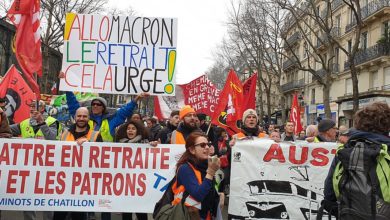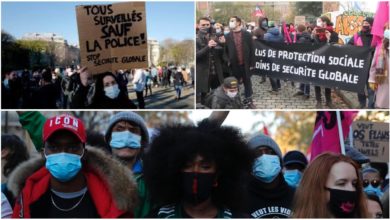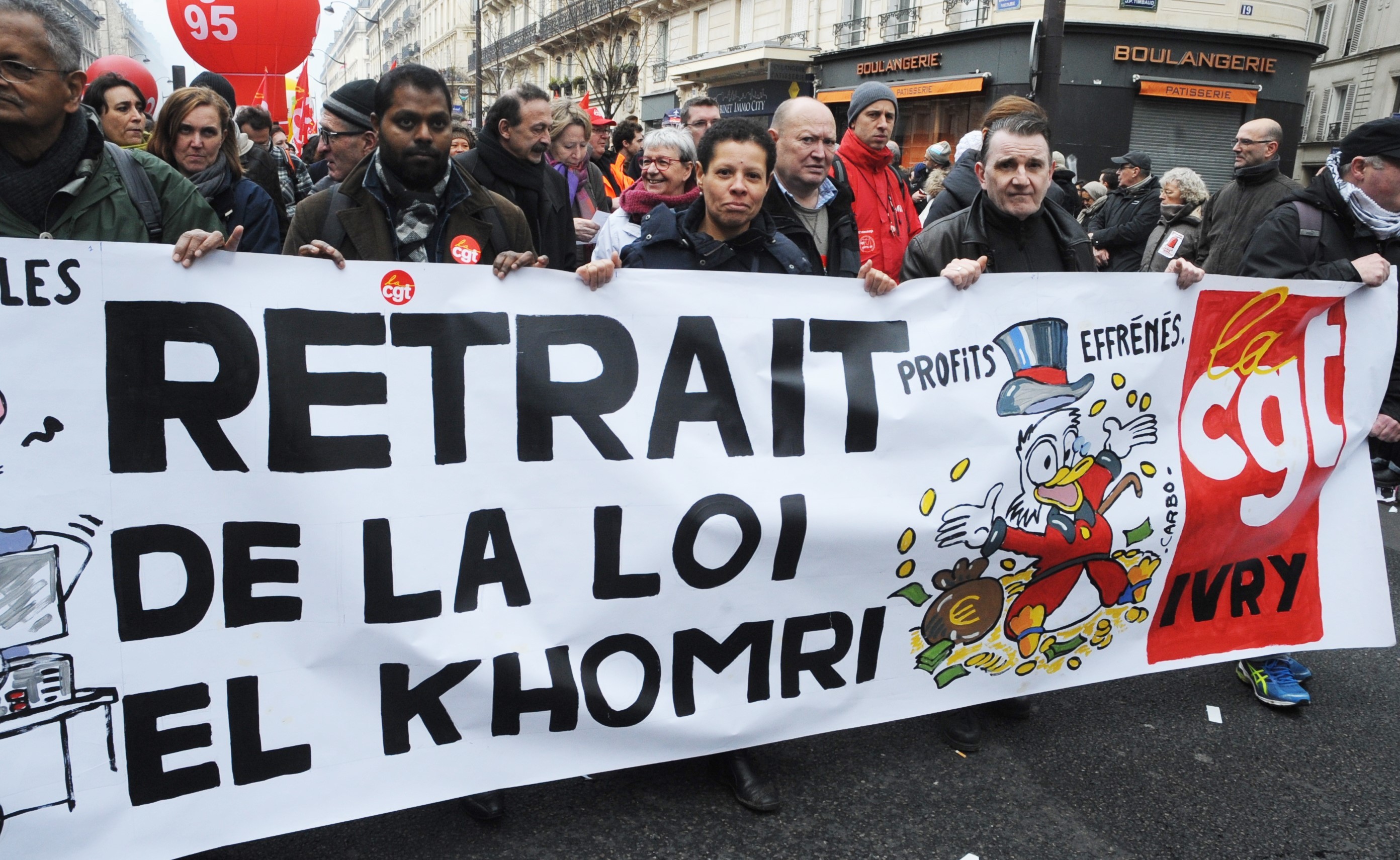
The massive rebellion by Arab and African youth in late October and November represents a historic awakening. For the first time, the immigrant communities sprawled across France’s urban centers have stood up in open rebellion against decades of racism, poverty and neglect.
The uprising was sparked when two North African teenagers, Ziad Benna and Bouna Traore, were electrocuted on Oct. 27 after being chased by police. Their deaths triggered an outpouring of mass anger. Tens of thousands of young people poured into the streets in cities across France, torching cars and clashing with cops.
What began as scattered protests in the Paris working-class suburb of Chichy-sous-Bois quickly turned into a nationwide rebellion. Within a week, young Arabs and Muslims were in the streets in over 300 cities and towns.
The rebellion had no political slogans or demands. But it represents a fundamental political challenge to the French ruling class. It is being carefully watched by the political and economic elites across Europe, who are fearful that the rage may cross France’s borders.
There are some 5 million African and Arab immigrants in France. Despite lofty claims about the “French model of integration,” these immigrants are largely clustered in segregated neighborhoods on the outskirts of major cities.
Ten percent of French workers are unemployed, according to official statistics. But for young people in the largely immigrant suburbs, the rate is as high as 50 percent.
Racism and police brutality are the norm in these communities. In a Nov. 4 statement, the Movement Against Racism and for the Friendship of Peoples (MRAP) called the reality that they face a “territorial, ethnic and social apartheid.”
Legacy of colonialism
The situation facing the Arab and African immigrants in France today is a direct outgrowth of French colonialism in northern Africa—especially in Algeria, once France’s primary colony on the continent.

Beginning in 1945, in the aftermath of World War II, the French government responded to labor shortages by encouraging Algerian workers to migrate to France. Successive French governments continued this policy by extending formal democratic rights to the Algerian immigrants as “fully French,” and by offering some social benefits.
But the Algerian immigration came against the backdrop of the intensifying Algerian liberation struggle that began in 1954. While the French military became mired in a brutal colonial pacification war, the Algerian neighborhoods became bastions of support for the liberation struggle within France itself. Efforts to pacify these “internal colonies” with economic enticements failed.
Algeria won its independence in 1962—but not before a million Algerians were killed by France’s brutal counterinsurgency campaign. The scars from French brutality are still felt today.
Government imposes iron fist
In fact, the legacy of that war was evoked explicitly in the current rebellion by the government of French President Jacques Chirac, Prime Minister Dominique de Villepin (himself born to a French colonial family in Morocco) and Interior Minister Nicolas Sarkozy. On Nov. 8, the French government declared a state of emergency, invoking a 1955 law passed to combat supporters of Algerian liberation in France.
That declaration immediately evoked memories of the Oct. 17, 1961, massacre of 300 Algerian immigrants in Paris. Police attacked a demonstration protesting a curfew imposed in Algeria. Hundreds were clubbed to death or shot. Bodies of immigrants were dumped in the Seine River.
While Villepin and other French politicians make vague promises to address the social needs of the immigrant communities, the French state has unleashed an iron fist against the rebellion.
Sarkozy referred to the demonstrating youth as “scum.” He promised to deport any foreigner rounded up in the anti-rebellion campaign. By Nov. 12, close to 2,500 people had been arrested, including 450 youths under 18 who were rushed through emergency juvenile court proceedings.
Challenge for the left
The rebellion poses an important challenge for the French communist and working-class organizations. How will the left, with deep roots in the French working class, address the situation facing Arab and African youth?
The extreme right, including the neo-fascist Jean-Marie Le Pen’s National Front, seized on the rebellion to fan anti-immigrant racism. He called for immigrants to be stripped of their French citizenship and deported. (Associated Press, Nov. 9)
Those appeals mean that solidarity with the immigrant communities is more important than ever.
Tens of thousands of Arab and African immigrants have taken to the streets to say: “No more.” They have set out—in a spontaneous way—to challenge the French ruling class and its legacy of colonial exploitation. They have set out on a road of political rebellion. That rebellion deserves the support of all progressive forces—in France and around the world.
What allies will they find in the struggle ahead? Can the struggle become the first steps toward a general working-class struggle against racism, imperialism, unemployment and poverty? Or will it find itself marginalized, trapped between the vicious anti-immigrant hysteria promoted by the ruling class on the one hand and narrow anti-working class ideologies promoted by conservative religious forces on the other?
The answers will emerge as the struggle—born in the flames of Molotov cocktails and street battles with police—matures and develops. The fires that swept Paris and other French cities for weeks cannot be extinguished by empty words, or even by token social programs.
It will depend in large measure on whether there are political forces on the left that can take up the challenge of building a united working class struggle on the basis of anti-racism, solidarity with oppressed nationalities and revolutionary internationalism.
Cars were set ablaze during protests on Nov. 2, 2005.
Photo: Dufour Sebastien/Gamma
Many suburbs were put under curfew.
Photo: Regis Duvignau





